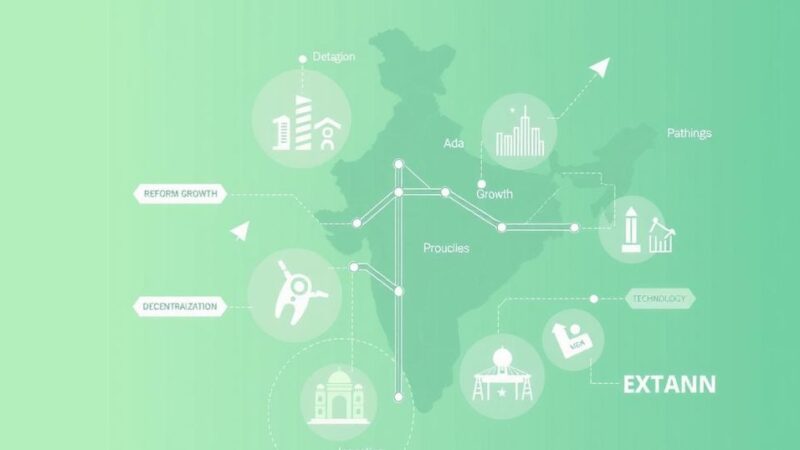Morocco’s livestock has decreased by 38% due to six years of drought, leading to higher imports of meat and livestock. Rainfall was significantly below average this year, impacting local agriculture and forcing the government to stabilize meat prices by suspending import taxes. The capacity of irrigation dams is critically low, prioritizing urban water supply over agriculture and raising concerns about future wheat yields.
Morocco’s livestock sector has faced severe decline due to ongoing droughts, with cattle and sheep herds decreasing by 38% over the past nine years, according to Agriculture Minister Ahmed El Bouari. Prolonged drought conditions have not only emptied dams but also led to significant job losses in agricultural sectors, prompting the government to expedite desalination projects to secure water resources.
This year’s rainfall was recorded at 53% below the average of the last three decades, contributing to a lack of pasture for livestock and subsequently reducing meat production. Increased imports of cattle and red meat have been necessary to address the decline in local production levels.
To stabilize local prices in light of these challenges, Morocco’s 2025 budget included a suspension of import duties and value-added taxes on cattle, sheep, camels, and red meat. By the year’s end, the country has imported a total of 124,000 sheep, 21,000 cattle, and 704 tons of red meat.
The irrigation reservoirs in key agricultural areas like Doukala and Souss-Massa are critically low, at 2% and 15% capacity respectively, which has resulted in a national dam filling rate of only 26%. Water supply priorities have shifted towards providing drinking water for urban areas, impacting agricultural irrigation.
The area dedicated to growing Morocco’s primary cereal crops, including soft wheat, durum wheat, and barley, has slightly increased to 2.6 million hectares from 2.4 million hectares last year. However, wheat yields remain uncertain and depend on rainfall patterns until the end of March.
In summary, Morocco’s livestock industry faces drastic cuts due to severe drought conditions that have diminished herd sizes and meat production capabilities, leading to increased imports for stabilization. The government has suspended taxes on imports of livestock and meat products while prioritizing urban water supply over agricultural needs, impacting key irrigation efforts. The future yields of staple crops such as wheat remain uncertain, hinging on rainfall for the coming months.
Original Source: clubofmozambique.com





